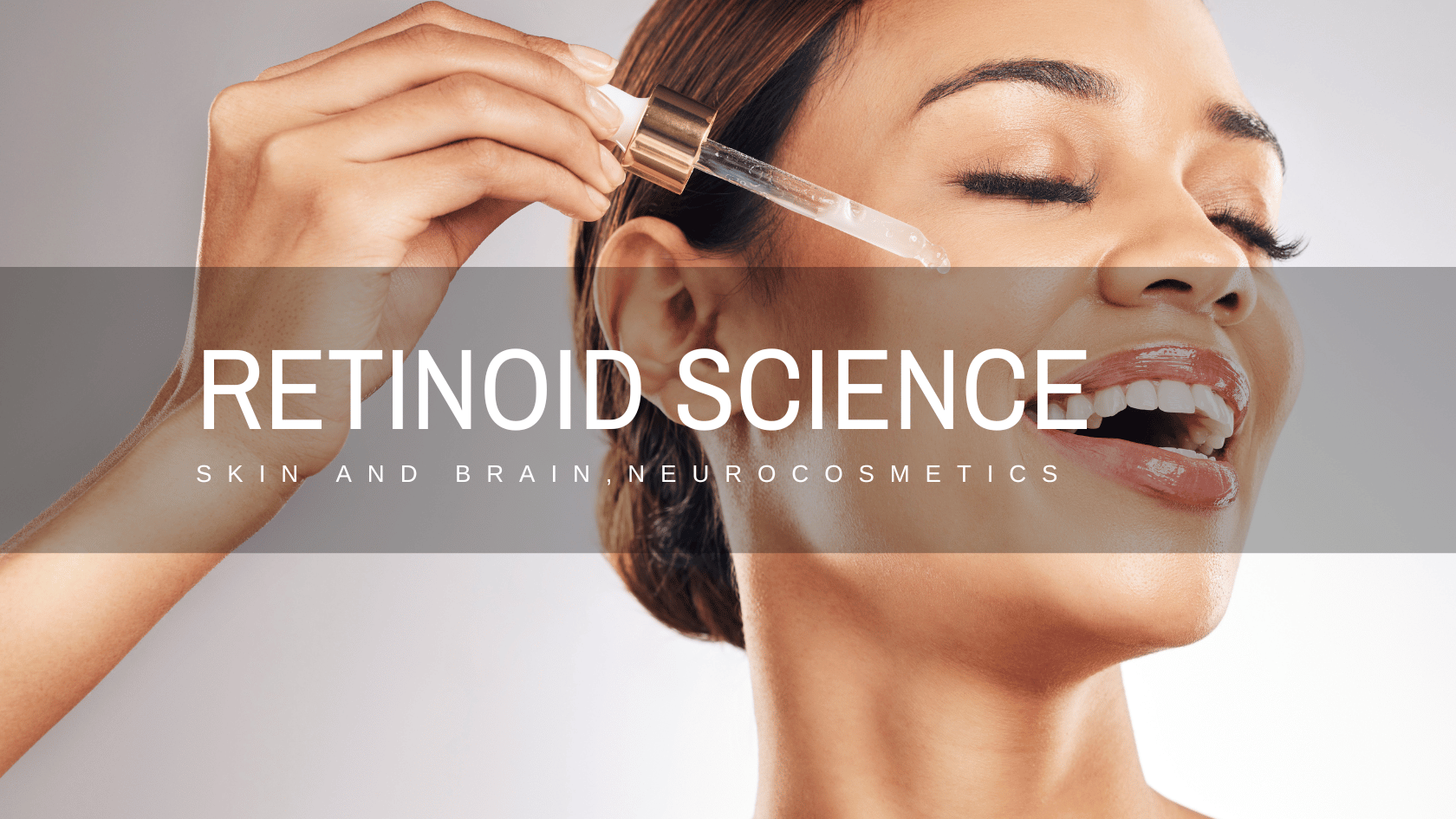Retinoids have earned their place as a gold standard in skincare, lauded by dermatologists and skincare enthusiasts alike. But what exactly are retinoids, how do they work, and why are they so essential for maintaining healthy skin? In this blog, we'll explore the science behind retinoids, backed by research, to help you understand their powerful role in skincare.
What Are Retinoids?
Retinoids are a class of compounds derived from Vitamin A, a fat-soluble vitamin essential for various bodily functions, including vision, immune function, and skin health. The term "retinoid" encompasses both naturally occurring forms, like retinol and retinal, and synthetic derivatives, such as tretinoin and adapalene. These compounds are widely used in skincare due to their potent ability to promote cell turnover, stimulate collagen production, and improve overall skin texture.
How Do Retinoids Work?
Retinoids function by interacting with retinoic acid receptors (RARs) and retinoid X receptors (RXRs) in the skin cells. Once applied to the skin, retinoids are converted into retinoic acid, the active form that binds to these receptors. This binding triggers a cascade of events at the cellular level, leading to the following effects:

- Increased Cell Turnover: Retinoids accelerate the skin's natural exfoliation process by promoting the shedding of dead skin cells and the production of new ones. This increased cell turnover helps to reduce the appearance of fine lines, wrinkles, and hyperpigmentation, resulting in a smoother and more even skin tone.
- Collagen Production: One of the most significant benefits of retinoids is their ability to boost collagen synthesis. Collagen, a protein responsible for skin structure and elasticity, decreases naturally as we get older, resulting in sagging and wrinkles.Retinoids stimulate fibroblasts, the cells responsible for producing collagen, helping to maintain firm and youthful-looking skin.
- Reduction of Acne and Congestion: Retinoids are highly effective in treating acne due to their ability to prevent the formation of comedones (clogged pores) and reduce inflammation. By keeping the pores clear and regulating oil production, retinoids can significantly reduce the occurrence of acne breakouts.
- Antioxidant Properties: Retinoids also have antioxidant effects, which means they can neutralize free radicals—unstable molecules that damage skin cells and accelerate aging. By combating oxidative stress, retinoids help protect the skin from environmental damage.
The Importance of Retinoids in Skincare
Given their multiple benefits, it's no wonder that retinoids are considered essential in skincare. Here's why incorporating retinoids into your routine can be a game-changer:
- Anti-Aging Powerhouse: Retinoids are one of the few ingredients with extensive scientific backing for their anti-aging properties. Studies have shown that long-term use of retinoids can reduce the depth of wrinkles, improve skin texture, and even out pigmentation.
- Comprehensive Acne Treatment: For those struggling with acne, retinoids offer a multi-faceted approach. They not only clear existing acne but also prevent new blemishes from forming. Additionally, they help fade post-inflammatory hyperpigmentation, the dark spots left behind after a breakout.
- Preventative Skincare: Even for those not yet concerned with visible signs of aging, retinoids can serve as a preventative measure. By boosting collagen and enhancing cell turnover, retinoids help maintain youthful skin and delay the onset of aging.
How to Use Retinoids Safely
While retinoids offer numerous benefits, they must be used correctly to avoid irritation. Here are a few pointers for adding retinoids to your skincare regimen:
- Start Slow: If you're new to retinoids, begin with a lower concentration (e.g., 0.25% retinol) and apply it every other night to allow your skin to adjust. Over time, you can increase the frequency and concentration as your skin builds tolerance.
- Moisturize: Retinoids can be drying, so it's essential to use a hydrating moisturizer to prevent irritation and flakiness. Applying a moisturizer before or after your retinoid can also help buffer its effects.
- Use Sunscreen: Retinoids can increase your skin's sensitivity to the sun, making it crucial to apply a broad-spectrum sunscreen with at least SPF 30 every morning.
- Be Patient: Retinoids take time to work. While some users may see improvements within a few weeks, it often takes several months of consistent use to experience the full benefits.
Conclusion
Retinoids are a scientifically proven ingredient that can significantly enhance your skincare routine. Whether you're looking to reduce signs of aging, clear up acne, or maintain healthy skin, retinoids offer a powerful solution. By understanding how retinoids work and how to use them effectively, you can unlock their full potential and enjoy the benefits of healthier, more radiant skin.
References
- Fisher, G. J., et al. (1996). "Retinoic acid inhibits induction of c-Jun protein by ultraviolet radiation that may explain its protective effect against skin aging." Journal of Clinical Investigation, 97(3), 633-642.
- Kang, S., et al. (2001). "Application of retinol to human skin in vivo induces epidermal hyperplasia and cellular retinoid-binding proteins characteristic of retinoic acid but without measurable retinoic acid levels or irritation." Journal of Investigative Dermatology, 117(3), 569-576.
- Kafi, R., et al. (2007). "Improvement of naturally aged skin with vitamin A (retinol)." Archives of Dermatology, 143(5), 606-612.
- Zaenglein, A. L., et al. (2016). "Guidelines of care for the management of acne vulgaris." Journal of the American Academy of Dermatology, 74(5), 945-973.
- Mukherjee, S., et al. (2006). "Retinoids in the treatment of skin aging: an overview of clinical efficacy and safety." Clinical Interventions in Aging, 1(4), 327-348.
- Griffiths, C. E. M., et al. (1993). "Restoration of collagen formation in photodamaged human skin by tretinoin (retinoic acid)." New England Journal of Medicine, 329(8), 530-535.
- Thielitz, A., et al. (2008). "Topical retinoids in acne – an evidence-based overview." Journal of the German Society of Dermatology, 6(12), 1023-1031.
- Kligman, A. M., et al. (1986). "Topical tretinoin for photoaged skin." Journal of the American Academy of Dermatology, 15(4), 836-859.

